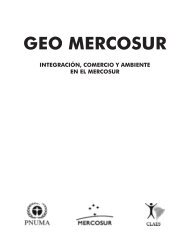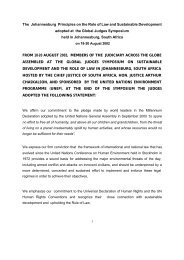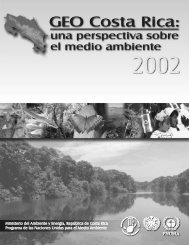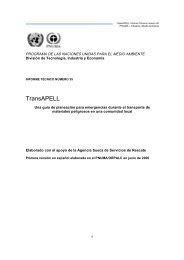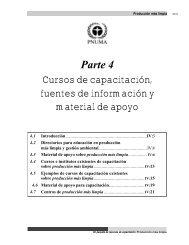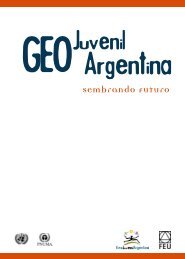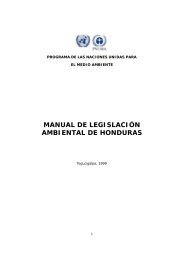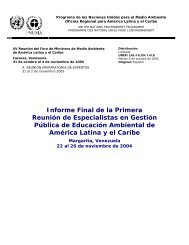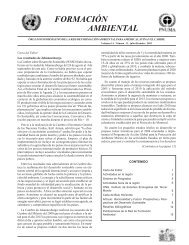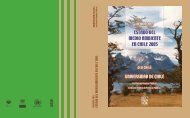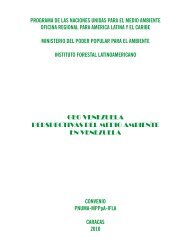English
English
English
Create successful ePaper yourself
Turn your PDF publications into a flip-book with our unique Google optimized e-Paper software.
ADVERSE EFFECTS ON THE ENVIRONMENT<br />
Some chemical pollutants affect the air, surface water, groundwater, soil or<br />
sediments, more than others. Different species will react to the same chemical in<br />
different ways and to a different degree. However, aquatic life has been proven to<br />
be the most vulnerable medium, where most effects first appear. However, what<br />
is highly toxic to aquatic life may not be toxic to birds. Similarly, some substances<br />
have a greater impact on other living organisms than on humans.<br />
Rather than focusing on defining and analysing the specific characteristics of air,<br />
soil and water contamination, the list below presents briefly different types of<br />
exposure of human beings and other living organisms to polluted environments:<br />
• By breathing polluted air. The World Health Organization estimates that<br />
4.6 million people die each year from causes directly attributable to air<br />
pollution. Many of these deaths are attributable to indoor air pollution. 24 In<br />
addition, polluted air makes the process of photosynthesis from plants<br />
more difficult;<br />
Box 1.10. A tragic story: the 1984 Bhopal Disaster<br />
On the night of 2 December 1984, over 35 tons of toxic gases leaked from a pesticide<br />
plant in Bhopal owned by the US-based multinational Union Carbide Corporation (UCC)'s<br />
Indian affiliate Union Carbide India Limited (UCIL).<br />
In the next 2-3 days more than 7,000 people died and many more were injured. Over the<br />
last 21 years, at least 15,000 more people have died from illnesses related to gas<br />
exposure. Today more than 100,000 people continue to suffer chronic and debilitating<br />
illnesses for which treatment is largely ineffective.<br />
Source: Amnesty International USA. “DOW Chemical Company (DOW), Union Carbide Corporation and<br />
the Bhopal Communities in India” http://www.amnestyusa.org/Business-and-Human-Rights/Dow-<br />
Chemical/page.do?id=1101668&n1=3&n2=26&n3=1241 (last accessed 14 April 2008)<br />
• By eating plants grown on contaminated soils. These chemicals can cause<br />
changes in the composition of the soil (i.e. alkalinity or acidity of soil pH),<br />
which affects living organisms and possibly the whole ecosystem; and<br />
• By drinking and using contaminated water from lakes, rivers, oceans, and<br />
groundwater.<br />
24 WHO Member State (2002). Estimated deaths & DALYs attributable to selected environmental risk<br />
factors http://www.who.int/entity/quantifying_ehimpacts/countryprofilesebd.xls (last accessed 19<br />
December 2007)<br />
39



